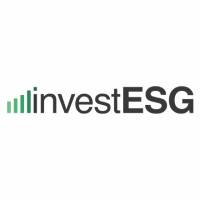Four ways that the investment industry can tackle gender inequality in its portfolios | WBA
INSIGHT by Nikki Gwilliam-Beeharee, Investor Engagement Lead and Talya Swissa, Social Transformation Engagement Manager; World Benchmarking Alliance

Last year, the World Benchmarking Alliance assessed 1,006 companies from ten sectors spanning more than 80 countries on the first steps that companies should be taking to address gender inequality. Results show that we still have a long way to go. A mere 7% of the companies meet the standard recommended by the International Labour Organization for maternity leave, which advises a minimum of 14 weeks, whilst only 27% of apparel companies demonstrate responsible purchasing practices by committing to timely and accurate payment to their suppliers. At the same time, some companies are heading the right direction. They are ensuring that women are seen, heard and able to participate equally in the workforce.
Given the rich data, expertise and insights on gender equality, together with our Ally Amundi, we recently hosted an event in London for investors to explore ways to tackle gender inequality in their portfolio companies. The event kicked off with insights on company performance from our 2023 Gender Assessment of companies and concluded with an interactive panel. Panellists represented a range of actors, including those working in, with and outside of the investment industry. Here are four recommendations that were made on how the investment industry can drive gender equality in their portfolio companies:1. Make use of open-source data and insights
Maria-Elena Anker, Associate at the Generation Foundation, emphasised the need for open-source data and insights about companies’ performance on promoting gender equality that go beyond the management and board statistics to cover the supply chain risks in high impact sectors. She mentioned that this is what led Generation Foundation to fund the World Benchmarking Alliance’s gender assessments of companies.2. Recognise the business risk
Laurent Arnone, Senior Advisor on Collective Action at Ethical Trading Initiative emphasised how gender inequalities, such as gender-based violence and harassment in global supply chains are a business risk, but that most of the time the issue and its negative effects on business are hidden. Arnone stated that what is urgently needed is more clarification on responsibilities within the private sector. He called for a move away from a ‘’zero tolerance’’ policy for suppliers, where suppliers are dropped if they report challenges. Unless there is openness to report this and dialogue with suppliers, then the real impacts and costs to business will remain hidden.Nathalie Allen Prince, Legal Director at Addleshaw Goddard LLP, also brought valuable insights from working in the legal profession. Prince highlighted how shared parental leave is starting to be introduced in more progressive law firms and that this has the potential to be a game changer for retention of skilled female professionals in firm. To have an impact, however, Prince pressed on the need for these firms and their senior management to encourage and model the policy’s uptake amongst men.3. Understand local contexts and perspectives
Luda Svystunova, Senior ESG Analyst and Social Themes Lead at Amundi Asset Management, brought in experience of working with the 30% Club, a business-led campaign group seeking to boost female representation at board and C-suite level in the world’s biggest companies. Svystunova emphasised the need for local perspectives and of understanding local context “even on the basics” and referred to what she had learnt working with other 30% Club members around the world on topics such as getting women into senior management and board level positions.4. Collaborate boldly
Zaryna Lee, UK Development Manager at EMpower called on the investment industry to “collaborate boldly” and explore how investment firms can learn from and align their strategies to drive gender equality. Lee emphasised the unique role of the private sector and in particular asset owners and asset managers to influence companies, but also to leverage the networks and expertise outside of the investment industry. Arnone also stated that “no stakeholder can address this on their own” and made a clear call for multi-stakeholder action from various stakeholders, including investors, businesses, NGOs and unions.Gender equality is a crucial component in achieving the UN’s sustainable development goals. Attendance at this event highlighted the growing interest and understanding of the investment industry to advance gender equality and influence corporate behaviour. Insights from the panellists and all the participants fed into our investor guidance published last month, and the Gender Collective Impact Coalition.For more information, please get in touch with Nikki Gwilliam-Beeharee, Investor Engagement Lead and Talya Swissa, Social Transformation Engagement Manager. aboutThe World Benchmarking Alliance (WBA) is an international non-profit organisation that assesses and ranks the world’s most influential companies’ performance on the United Nations Sustainable Development Goals (SDGs). We publish publicly available and free benchmarks that inform and empower business leaders and investors, as well as governments, civil society and other key stakeholders. The WBA publishes the SDG2000 list, which outlines the 2000 companies that have the most influence in contributing to the achievement of the SDGs. WBA's benchmark insights and data aim to serve as an accountability mechanism, incentivising companies to become a successful driver of change and deliver on the SDGs. Together with our global and multi stakeholder Alliance, a global community of 400+ organisations working on the SDGs, we are building a movement that enables transparent dialogue, and ultimately action towards a more inclusive, fair and sustainable world.All opinions expressed are those of the author and/or quoted sources. investESG.eu is an independent and neutral platform dedicated to generating debate around ESG investing topics.

